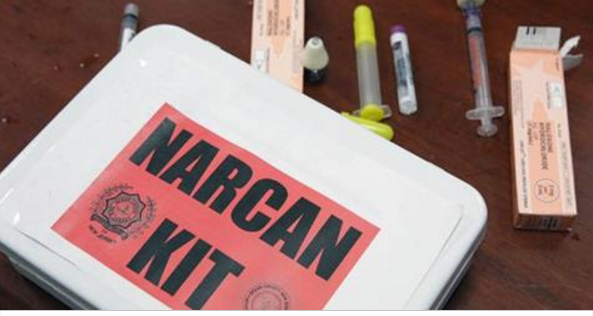
State Police Have Used Narcan to Save 100 People from Opioid Overdoses since Completing Training in 2014
Governor Dannel P. Malloy and Lt. Governor Nancy Wyman are thanking the Connecticut State Police for saving 100 lives in fewer than two years through the administration of the opioid antagonist Narcan to individuals experiencing overdoses. The 100th save by a Connecticut State Trooper occurred early Sunday morning in Woodbury.
Following the enactment of a new state law in 2014 introduced by Governor Malloy that gave civil and criminal liability protection to anybody who administers Narcan in good faith to an individual experiencing an overdose, Department of Emergency Services and Public Protection (DESPP) Commissioner Dora B. Schriro arranged for all Connecticut State Police Troopers to complete a training program providing them with the skills needed to administer the medication, and equipped them with the treatment while on duty. Law enforcement are frequently the first on the scene of an overdose.
"Connecticut's state troopers are among the best in the nation, and this is proof positive that their dedication to the residents of this state is having a lasting impact," Governor Malloy said. "Training and equipping our state's first responders was a commonsense step in our efforts to combat the alarming, nationwide trend of heroin and prescription drug abuse. Not only are these frontline men and women saving lives, but their action is helping people begin the necessary path toward treatment and recovery, and I thank them for their service."
"Giving first responders access to Narcan - and the training to use it - saves lives," Lt. Governor Wyman said. "This announcement makes clear just how important this strategy has been to our overall efforts to combat opioid abuse. But more importantly, it speaks to our commitment to protecting to public health and the residents who deal with addiction."
"I am proud of our troopers. Their commitment to the safety and wellbeing of everyone who lives in Connecticut, including residents grappling with opioid addiction, is second to none," Commissioner Schriro said. "One hundred people who were in severe medical distress were given a second chance to address their addiction because of the actions of Connecticut State Troopers."
In addition to training their own staff, the state - in a joint effort between DESPP (including the Police Officer Standards and Training Council and Fire Services Academies), the Department of Public Health, the Department of Mental Health and Addiction Services, and the Department of Correction - has also provided classes on the administration of Narcan to local police and fire departments in municipalities across the state.
Recent State Action on Opioids
Over the last several years, Governor Malloy and the state legislature have enacted a series of laws aimed at combating the nationwide opioid epidemic. These include:
- the 2011 adoption of Good Samaritan laws protecting individuals from prosecution for minor drug crimes who seek medical attention for a friend experiencing an overdose (Public Act 11-210);
- the 2012 adoption of third party prescriber laws allowing the prescription of naloxone to an individual who is not the direct user of the drug (Public Act 12-159);
- the 2014 expansion of Good Samaritan protections for any person who, in good faith, administers naloxone to save a life. Previously, only licensed health care practitioners were allowed to administer the medication without being civilly or criminally liable for the action. Following the law's adoption, all Connecticut State Police Troopers completed a training program providing them with the skills to administer the medication. (Public Act 14-61);
- the 2015 adoption of legislation that expanded prescriber education, made use of the Prescription Monitoring Program (PMP) mandatory for all prescribers of controlled substances, expanded the scope of practice for pharmacists to allow them to directly prescribe naloxone and reconstituted the Alcohol and Drug Policy Council (ADPC) as a statewide coordinating body to fight the spread of substance abuse and overdose (Public Act 15-198); and
- the 2016 legislative package that, among other things, limits (with certain exceptions) the prescribing of opioid drugs to seven days, and requires municipalities to update their medical service plans to ensure first responders are equipped with Narcan (Public Act 16-43).